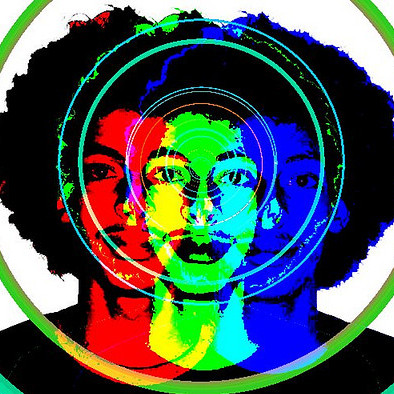
As the use of marijuana for medical purposes becomes more widely accepted, a new legalization movement is beginning to form, this time with psychedelics.
Like marijuana advocates, psychedelic-legalization supporters say that the American public has been misinformed about the dangers of psychedelic drug use, and that like marijuana, psychedelics have a medicinal benefit that may be a treatment option for groups suffering from mental health and psychological conditions such as autism, depression, post-traumatic stress disorder, schizophrenia and alcoholism.
A 2011 study from the Center for Autism at the University of California-Los Angeles examined the psychedelic drug MDMA — ecstasy — and found that persons with autism using the drug often report an increase in socialization and strong feelings of empathy that last even after the drug has worn off.
The findings were seen as a major discovery from autism researchers, who are now conducting clinical studies to see whether or not MDMA increases empathy and enhances communication abilities for a majority of those who suffer from an autism disorder.
One major concern for many about using psychedelic drugs is how the substances will affect the brain. A recent study from the Norwegian University of Science and Technology’s Department of Neuroscience, published in August, asked more than 130,000 people about psychedelic drug use. Of the random sample, about 22,000 people said they had used psychedelics at least once in their life
Based on an analysis of the information provided to the researchers, the study concluded that the use of LSD, magic mushrooms or peyote does not appear to increase a person’s risk of developing mental health problems.
Psychedelics 101
Psychedelic drugs include LSD or acid, psilocybin mushrooms, mescaline — which is found in peyote — ibogaine, salvia and DMT — which is found in ayahuasca. According to researchers, psychedelics differ from other recreational drugs such as alcohol and tobacco in that the drugs do not cause addiction or compulsive use and there is no evidence they cause any damage to the brain.
It was estimated in 2003 that more than 20 million Americans had ingested a psychedelic drug. According to the Drug Policy Alliance, unlike alcohol, there has never been a recorded overdose for most psychedelic drugs, including the most common, LSD and psilocybin mushrooms.
Before the U.S. Drug Enforcement Agency (DEA) classified psychedelics as Schedule I drugs in the 1970s, psychedelic drug use was a large part of the hippie counterculture of the 1960s, while the mind-altering substances have also been used for thousands of years by some religious groups for spiritual purposes.
Despite psychedelic drug use being associated with counterculture movements and users having “bad trips,” use of the drugs for both religious and therapeutic purposes has been around for thousands of years, and psychologists have been researching the medicinal benefits of mind-altering drugs for those with psychological issues since at least the 1950s.
One of the first reports that found a medicinal benefit for psychedelic drugs was published more than 70 years ago by the Swiss chemist Albert Hofmann. He discovered that LSD had compounds in it that would possibly treat psychological ailments, and after reviewing the results, psychiatrist Humphrey Osmond called the drugs “psychedelic,” which comes from a Greek word that means “mind-revealing.”
Though the classification as Schedule I substances initially shut down many studies on the psychedelics by the early 1970s, there were already more than 1,000 research papers that found psychedelic drugs could be used to treat psychological disorders, along with 40,000 patients with a range of psychological disorders who were willing to testify how the drugs had helped them.
Effects on the brain
In the 2013 study from the Norwegian University of Science and Technology’s Department of Neuroscience, researcher Teri Krebs and clinical psychologist Pål-Ørjan Johansen found that those who used psychedelic drugs appeared to have fewer mental health problems such as general psychological distress, anxiety disorders, mood disorders and psychosis, than those who did not.
While those persons who had used psychedelic drugs in the study had fewer mental health problems than those who had not tried the mind-altering substances, the researchers stressed that they did not know if use of the drugs resulted in fewer psychological issues or if it was another factor.
“After adjusting for other risk factors, lifetime use of LSD, psilocybin, mescaline or peyote, or past year use of LSD was not associated with a higher rate of mental health problems or receiving mental health treatment,” Johansen said.
Though the researchers reported they were unable to find any evidence that psychedelic drugs have any lasting harmful effects, they said that they “cannot exclude the possibility that use of psychedelics might have a negative effect on mental health for some individuals or groups, perhaps counterbalanced at a population level by a positive effect on mental health in others.”
“Everything has some potential for negative effects, but psychedelic use is overall considered to pose a very low risk to the individual and to society,” Johansen said, adding that “psychedelics can elicit temporary feelings of anxiety and confusion, but accidents leading to serious injury are extremely rare.”
Explaining the results of the study to PLOS ONE, Kreb said, “Early speculation that psychedelics might lead to mental health problems was based on a small number of case reports and did not take into account either the widespread use of psychedelics or the not infrequent rate of mental health problems in the general population.”
“Over the past 50 years tens of millions of people have used psychedelics and there just is not much evidence of long-term problems,” she said.


